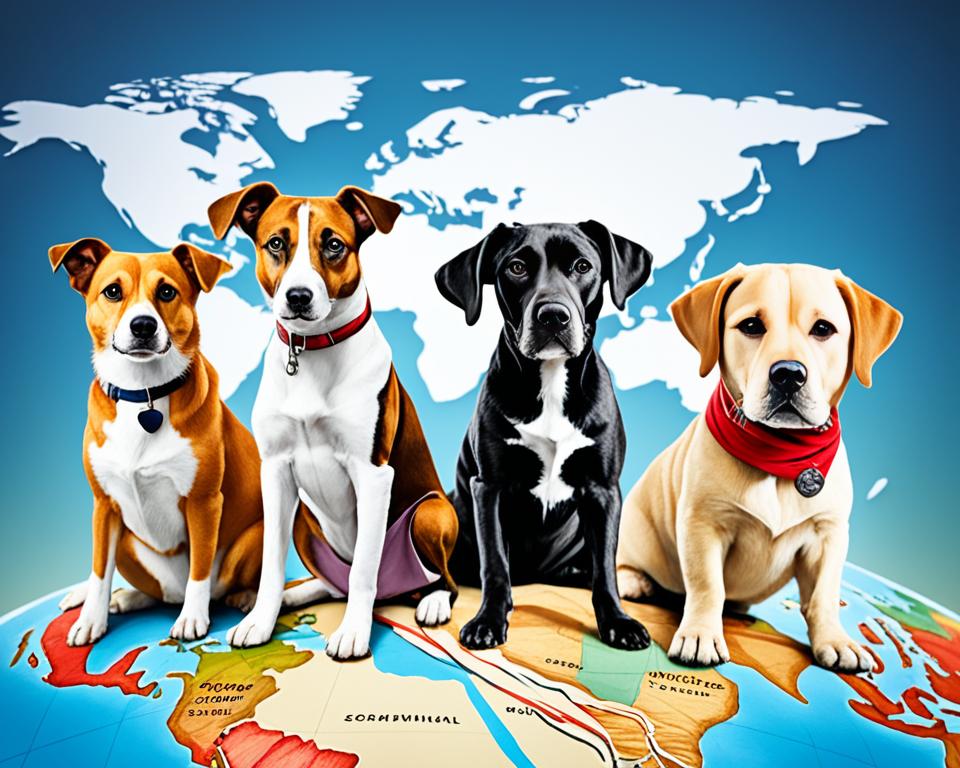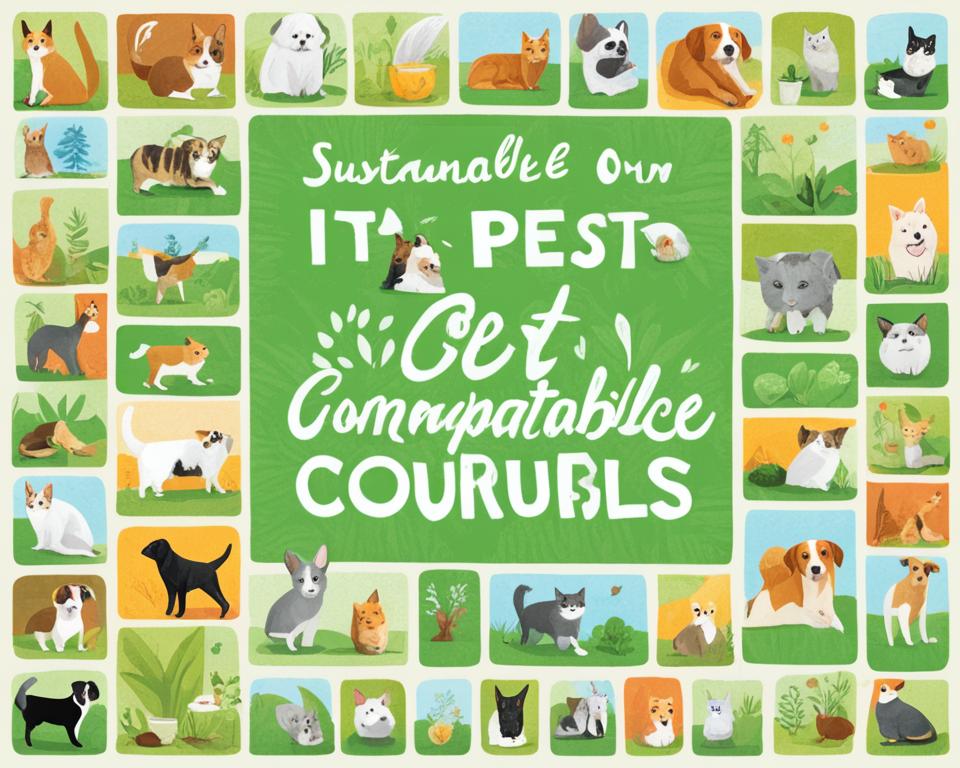Pets and Cultural Connection As a passionate advocate for community-building, I’ve observed how pets can serve as powerful catalysts for fostering social connections and a shared sense of responsibility. According to Jodi Mucha, Executive Director of the BC Healthy Communities Society, pets can contribute significantly to strengthening the ties that bind a community together.
Owning a pet often becomes a common topic of conversation among community members, creating a natural and positive avenue for social interaction. Pet-friendly events, such as dog walks or pet parades, encourage community members to come together over their shared love for animals. The shared responsibility of caring for pets can create a sense of belonging within a community, as neighbors may collaborate on pet-related tasks.

Regular walks and outdoor activities with pets can lead to increased interaction between pet owners, further fostering a sense of community. Pets can also provide emotional support, and their presence can be particularly comforting during challenging times. Communities that support pet adoption and welfare initiatives often come together to organize events and awareness campaigns, uniting community members over a shared goal of improving the lives of pets. Overall, pets can serve as catalysts for social interaction, collaboration, and a shared sense of responsibility, contributing to the development of a strong and interconnected community.
Key Takeaways Pets and Cultural Connection
- Pets can be powerful catalysts for fostering social connections and a shared sense of responsibility within a community.
- Pet ownership often becomes a common topic of conversation, creating a natural and positive avenue for social interaction.
- Pet-friendly events and the shared responsibility of caring for pets can contribute to a sense of belonging and community.
- Pets can provide emotional support and comfort, particularly during challenging times.
- Communities that support pet adoption and welfare initiatives often come together, uniting over a shared goal.
The Power of the Human-Animal Bond
The profound Pets and Cultural Connection between humans and their animal companions has long been recognized for its transformative potential. Research has shown that the
human-animal bond
can promote more positive attitudes and behaviors toward animals generally, including toward non-pet animals. According to the “pets as ambassadors” hypothesis,
contact with pets can serve as a springboard to more positive attitudes and moral considerations toward animals more broadly. In a large representative Canadian sample, pet owners reported more positive attitudes toward non-pet animals (e.g., wild, farm animals), higher identification with animals, and more positive attitudes toward human outgroups compared to non-pet owners. The quality of one’s relationship with a pet also plays a role, as stronger attachment to one’s pet has been associated with more positive attitudes toward pets, more positive behaviors toward animals generally, and greater empathy toward humans.
Fostering Social Pets and Cultural Connection
The
cultural significance of pets
and
pet ownership trends
reveal that owning a pet often becomes a common topic of conversation among community members, creating a natural and positive avenue for social interaction.
Pet ownership conversations allow people to share stories, tips, and experiences related to their pets, fostering Pets and Cultural Connection between community members and strengthening the social impact of pets within the local landscape.
Creating Natural Conversation Starters
The human-animal bond and pets in family dynamics suggest that the shared responsibility of caring for pets can create a sense of belonging within a community. Neighbors may collaborate on pet-related tasks, such as pet sitting or walking, which can contribute to a feeling of shared responsibility and a greater sense of belonging among community members.
Shared Responsibilities and Sense of Belonging
The cultural significance of pets and social impact of pets are further reinforced by the way in which the shared care for a pet can foster a stronger sense of community. This shared responsibility can serve as a natural conversation starter, allowing individuals to connect over their experiences and create a stronger sense of belonging within the local context.
Pets as Gateways to Environmental Awareness
The profound cultural significance of pets extends far beyond mere companionship – it appears that our human-animal bond can also serve as a gateway to greater environmental consciousness. According to a recent study, pet owners reported higher biospheric environmental concerns, a stronger sense of human-environment interdependence, and reduced meat consumption compared to non-pet owners.
This intriguing finding suggests that pets can act as “ambassadors” not only for other animals but also for broader environmental issues and sustainable living practices. By fostering a deeper appreciation for the natural world through our interactions with pets, we may be more inclined to adopt eco-friendly behaviors and embrace a more holistic perspective on our role within the ecosystem.
Recognizing pets as potential gateways to environmental consciousness is an important step in understanding the far-reaching impact of the human-animal bond. As we continue to explore the cultural significance of pets and their influence on our attitudes and actions, we may uncover valuable insights that can inform more sustainable lifestyles and a greater respect for the delicate balance of our shared planet.

The Cultural Significance of Pets
As the third source indicates, while pet ownership is commonplace in many occidental countries, the cultural significance of pets and the practices surrounding pet ownership can vary considerably across different cultures. Exploring cross-cultural perspectives on pet ownership can provide valuable insights into the diverse ways in which pets are perceived and integrated into the fabric of various societies.
Cross-Cultural Perspectives on Pet Ownership
The cultural significance of pets is not a universal constant, but rather a nuanced and multifaceted phenomenon that is shaped by the unique histories, traditions, and belief systems of different communities. Examining cross-cultural pet practices can shed light on how the human-animal bond is interpreted and manifested in distinct cultural contexts, offering a more holistic understanding of the role of pets in society.
Pets in Literature and Art Pets and Cultural Connection
In addition to the lived experiences of pet ownership, the representation of pets in literature and art can also reflect the cultural significance and symbolic meanings associated with human-animal relationships. The depiction of pets in various forms of creative expression can offer insights into how pets are perceived, valued, and imbued with meaning within a particular cultural context.
Furthermore, the cultural significance of pets is often conveyed through the ways in which they are portrayed in the realms of literature and art, as these mediums can serve as powerful vehicles for exploring the nuances and complexities of the human-animal bond.
Pets and Mental Health
The cultural significance of pets extends far beyond their role as loyal companions. Emerging research suggests that pets can have a profoundly positive impact on our mental health and well-being. As the cultural significance of pets continues to grow, the therapeutic benefits of these beloved animals are being recognized and harnessed in a variety of settings.
Emotional Support Animals Pets and Cultural Connection
One of the most prominent ways in which pets have been integrated into mental health support is through the use of emotional support animals. These specially trained companions are designed to provide comfort, stability, and assistance to individuals grappling with various mental health challenges, such as anxiety, depression, or post-traumatic stress disorder. The presence of an emotional support animal can have a calming effect, helping to alleviate symptoms and improve the overall well-being of their owners.
Pet Therapy Programs Pets and Cultural Connection
In addition to emotional support animals, the cultural significance of pets is also manifested through the rise of pet therapy programs. These initiatives involve the purposeful integration of trained therapy pets into various settings, including healthcare facilities, educational institutions, and community centers. By leveraging the human-animal bond, pet therapy programs aim to provide therapeutic benefits and enhance the overall well-being of individuals in need of support, whether they are facing physical, emotional, or cognitive challenges.
Pets as Ambassadors for Animal Welfare
Pets and Cultural Connection The cultural significance of pets extends beyond their role as beloved companions. According to the second source, contact with pets can serve as a springboard to more positive attitudes and moral considerations toward animals more generally, including toward non-pet animals such as wild or farm animals. Pet owners in the study reported more positive attitudes toward non-pet animals compared to non-pet owners, indicating that pets can act as “ambassadors” for other animals and promote a more inclusive perspective on animal welfare.
Positive Attitudes Toward Non-Pet Animals
The findings from the second source suggest that the human-animal bond fostered through pet ownership can have a positive impact on how individuals perceive and relate to animals beyond their own pets. Pet owners in the study demonstrated more positive attitudes toward non-pet animals, underscoring the potential for pets to serve as cultural ambassadors and promote a more inclusive view of animal welfare.
Reduced Speciesism and Increased Empathy
Pets and Cultural Connection The second source also revealed that pet owners reported higher identification with animals, which can lead to reduced speciesism (the tendency to value human interests over non-human animals) and increased empathy toward animals. This further highlights the transformative power of the human-animal bond, as it can shape individuals’ perspectives and encourage a more compassionate and inclusive approach to the treatment of all animals, not just those kept as pets.

The Impact of Pets on Family Dynamics
The cultural significance of pets extends far beyond individual relationships, as they can have a profound impact on the dynamics within a family. According to the first and second sources, pets can play a vital role in strengthening family bonds and instilling valuable lessons in responsibility and empathy.
Strengthening Family Bonds Pets and Cultural Connection
The shared responsibility of caring for a pet can create a sense of togetherness and belonging within a family, as family members collaborate on pet-related tasks and activities. Whether it’s taking the dog for a walk, grooming the family cat, or planning a pet-friendly outing, these shared experiences help to bring family members closer together. Additionally, the presence of a pet can serve as a natural conversation starter, providing a common ground for family members to connect and share stories about their furry friend, Pets and Cultural Connection, Pets and Cultural Connection.
Teaching Responsibility and Empathy Pets and Cultural Connection
The first source suggests that the shared responsibility of caring for a pet can also teach family members, particularly children, important values such as responsibility and empathy. Involving children in the care and well-being of a pet can help them develop a sense of accountability, as they learn to prioritize the needs of their animal companion. Furthermore, this experience can foster a deeper understanding and appreciation for the needs of others, both human and non-human, ultimately shaping their relationships and empathy towards all living beings.
Celebrities and Their Pets: Influencing Social Trends
The public’s fascination with celebrity culture and the high-profile nature of celebrity pet ownership can undoubtedly contribute to shaping social perceptions and trends around pet ownership and the cultural significance of pets. As celebrities and their pets capture the spotlight, the media coverage surrounding these relationships can help to further amplify the impact of pets on society, Pets and Cultural Connection, Pets and Cultural Connection.
When celebrities and their pets are thrust into the public eye, the images and stories shared can influence how the broader population views and interacts with their own animal companions. The social trends emerging from this phenomenon can range from increased pet adoptions and the growing popularity of certain pet breeds, to the embrace of pet-friendly policies and the heightened awareness of animal welfare initiatives, Pets and Cultural Connection.
Just as celebrities can shape fashion and lifestyle trends, their pets as cultural ambassadors can also play a significant role in driving societal shifts around pet ownership and the cultural significance of pets. By showcasing the joy, companionship, and even the therapeutic benefits of pet ownership, celebrities can inspire their fans to explore the transformative power of the human-animal bond.

As the influence of celebrity culture continues to permeate various aspects of our lives, it is essential to recognize the potential impact that celebrities and their pets can have on social trends and the cultural significance of pets within our communities. By understanding this dynamic, we can better harness the power of these relationships to foster a deeper appreciation for the profound role that pets play in our lives and in shaping our collective societal landscape, Pets and Cultural Connection.
Overcoming Cultural Barriers Through Shared Love
The love for pets is often a universal experience that transcends cultural differences. This commonality can serve as a foundation for building Pets and Cultural Connection and understanding among diverse community members. Pets can act as a bridge, allowing individuals from different backgrounds to find common ground and engage in meaningful interactions, ultimately helping to overcome cultural barriers and promote cross-cultural understanding.
Bridging Diverse Communities Pets and Cultural Connection.
The shared love and care for pets can provide a platform for individuals from diverse cultural backgrounds to connect, share experiences, and develop a greater appreciation for each other’s perspectives. This can contribute to the promotion of cross-cultural understanding and the breakdown of preconceived notions or stereotypes, fostering a more inclusive and harmonious society, Pets and Cultural Connection.
Promoting Cross-Cultural Understanding
By recognizing the cultural significance of pets and their ability to transcend boundaries, we can work towards a more inclusive, empathetic, and sustainable future where the human-animal relationship is celebrated and nurtured. The shared love and care for pets can provide a platform for individuals from diverse cultural backgrounds to connect, share experiences, and develop a greater appreciation for each other’s perspectives.
The Role of Pets in Sustainable Living
The cultural significance of pets extends beyond their role as beloved companions. As the second source indicates, pet ownership and positive contact with pets are associated with higher biospheric environmental concerns and a greater sense of human-environment interdependence. This suggests that pets can act as gateways to environmental awareness, encouraging pet owners to be more conscious of their impact on the natural world and to adopt more sustainable practices.
Pets and Environmental Consciousness
By fostering a deeper Pets and Cultural Connection with the natural world through their pets, individuals may become more inclined to adopt environmentally-conscious behaviors, such as reducing their carbon footprint, supporting renewable energy sources, and minimizing waste. Pets can serve as ambassadors for the environment, inspiring their owners to rethink their daily habits and find ways to live more sustainably, Pets and Cultural Connection.
Ethical Considerations in Pet Ownership
While the sources do not explicitly address the ethical considerations in pet ownership, it is crucial to acknowledge that responsible and ethical practices are essential for the well-being of both pets and the environment. This may include factors such as responsible breeding, adoption from shelters, providing proper care and nutrition, and minimizing the environmental impact of pet ownership. Exploring these ethical dimensions can further enhance the understanding of the cultural significance of pets and their role in promoting sustainable living.

The Future of Human-Animal Relationships
As the cultural significance of pets continues to grow, the evolving landscape of human-animal relationships presents both exciting opportunities and complex challenges. While the third source does not provide specific insights into this future, we can draw reasonable inferences based on the trends and themes observed throughout our exploration of this topic, Pets and Cultural Connection.
Emerging Trends and Challenges
With the increasing recognition of the importance of the human-animal bond, we can anticipate advancements in pet care and welfare. This may include innovations in veterinary medicine, the development of more comprehensive support systems for pet owners, and the integration of pets into various aspects of society, such as the workplace and healthcare settings. Additionally, the ethical considerations surrounding the human-animal relationship will likely come to the forefront, as we navigate the complex interplay between the needs of pets, their human companions, and the broader environmental impact, Pets and Cultural Connection.
Policies and Regulations Pets and Cultural Connection
As the cultural significance of pets continues to grow, policymakers and regulatory bodies will need to address emerging issues and concerns related to pet ownership, animal welfare, and the integration of pets into diverse societal contexts. The development of comprehensive policies and regulations can help ensure the well-being of both pets and their human companions, while also considering the broader implications on communities and the environment. This may involve regulations around responsible breeding, animal cruelty prevention, and the provision of resources and support for pet owners.
Conclusion Pets and Cultural Connection
Throughout this article, we have explored the profound cultural significance of pets and their role in shaping human-animal bonds across societies. Pets have the power to foster social Pets and Cultural Connection, promote environmental awareness, and bridge diverse communities through shared love and understanding. As “cultural ambassadors,” pets can have a far-reaching impact, influencing attitudes towards animals, the natural world, and even human-to-human relationships.
The human-animal bond is a complex and multifaceted phenomenon that continues to evolve, presenting both challenges and opportunities for the future. By recognizing the cultural significance of pets and their ability to transcend boundaries, we can work towards a more inclusive, empathetic, and sustainable future where the human-animal relationship is celebrated and nurtured.
As we move forward, it is crucial to continue exploring the societal impact of pets and the ways in which they can serve as ambassadors for promoting compassion, environmental stewardship, and cross-cultural understanding. The human-animal bond is a powerful force that has the potential to transform individuals, communities, and even our collective relationship with the natural world, Pets and Cultural Connection.
FAQ
What are the ways in which pets can contribute to building community?
According to Jodi Mucha, Executive Director of the BC Healthy Communities Society, pets can contribute significantly to building community in various ways. Owning a pet often becomes a common topic of conversation among community members, creating a natural and positive avenue for social interaction. Pet-friendly events, such as dog walks or pet parades, encourage community members to come together over their shared love for animals. The shared responsibility of caring for pets can create a sense of belonging within a community, as neighbors may collaborate on pet-related tasks. Regular walks and outdoor activities with pets can lead to increased interaction between pet owners, fostering a sense of community.
How can pets serve as “ambassadors” for promoting positive attitudes toward animals and the environment?
Research has shown that human-pet relationships can promote more positive attitudes and behaviors toward animals generally, including toward non-pet animals. According to the “pets as ambassadors” hypothesis, contact with pets can serve as a springboard to more positive attitudes and moral considerations toward animals more broadly. Pet owners have been found to report more positive attitudes toward non-pet animals (e.g., wild, farm animals), higher identification with animals, and more positive attitudes toward human outgroups compared to non-pet owners.
The quality of one’s relationship with a pet also plays a role, as stronger attachment to one’s pet has been associated with more positive attitudes toward pets, more positive behaviors toward animals generally, and greater empathy toward humans. Additionally, pet owners have been found to report higher biospheric environmental concerns, higher human-environment interdependence beliefs, and lower usual meat consumption compared to non-pet owners, suggesting that pets can act as “ambassadors” for environmental issues and sustainable living practices.
What are the cultural differences in the significance and practices surrounding pet ownership?
While pet ownership is normative in many occidental countries, the cultural significance of pets and the practices surrounding pet ownership can vary across different cultures. Cross-cultural perspectives on pet ownership can provide valuable insights into the diverse ways in which pets are perceived and integrated into different societies. Additionally, the representation of pets in literature and art can reflect the cultural significance and symbolic meanings associated with human-animal relationships in various contexts, Pets and Cultural Connection.
How can pets impact mental health and well-being?
Pets can have a positive impact on mental health and well-being. Pets can provide emotional support and companionship, which can be particularly beneficial for individuals experiencing mental health challenges. The use of emotional support animals, which are trained to provide comfort and assistance to their owners, has become more prevalent in recent years as a way to address various mental health conditions. Additionally, pet therapy programs, which involve the involvement of trained therapy pets in various settings, aim to leverage the human-animal bond to provide therapeutic benefits and improve the overall well-being of individuals in need of support.
How can pets influence family dynamics and teach important values?
Pets can have a positive impact on family dynamics by strengthening family bonds. The shared responsibility of caring for a pet can create a sense of togetherness and belonging within a family, as family members collaborate on pet-related tasks and activities. Additionally, the presence of a pet can provide a natural conversation starter and shared experience that brings family members closer together. Involving children in the care and well-being of a pet can also help them develop a sense of responsibility and empathy, which can have broader implications for their relationships with both human and non-human beings.
How do celebrities and their pets influence social trends?
The sources do not provide specific information about the influence of celebrities and their pets on social trends. However, it is reasonable to assume that the public’s fascination with celebrity culture and the high-profile nature of celebrity pet ownership could contribute to shaping social perceptions and trends around pet ownership and the cultural significance of pets. Celebrities’ interactions with their pets and the media coverage surrounding these relationships may help to further amplify the cultural significance of pets and their impact on society.
How can pets help overcome cultural barriers and promote cross-cultural understanding?
The love for pets is often a universal experience that transcends cultural differences. This commonality can serve as a foundation for building Pets and Cultural Connection and understanding among diverse community members. Pets can act as a bridge, allowing individuals from different backgrounds to find common ground and engage in meaningful interactions, ultimately helping to overcome cultural barriers and promote cross-cultural understanding.
What are the ethical considerations in pet ownership, and how do they impact sustainable living?
While the sources do not explicitly address ethical considerations in pet ownership, it is important to acknowledge that responsible and ethical pet ownership practices are crucial for the well-being of both pets and the environment. This may include factors such as responsible breeding, adoption from shelters, providing proper care and nutrition, and minimizing the environmental impact of pet ownership. Exploring these ethical dimensions can further enhance the understanding of the cultural significance of pets and their role in promoting sustainable living.
What are the emerging trends and challenges in the future of human-animal relationships?
Pets and Cultural Connection The sources do not provide specific information about the future of human-animal relationships or emerging trends and challenges in this area. However, given the growing cultural significance of pets and the increasing recognition of the importance of the human-animal bond, it is reasonable to assume that this field will continue to evolve and face new developments. Potential areas of exploration may include advancements in pet care and welfare, the integration of pets into various aspects of society, and the ethical considerations surrounding the human-animal relationship in the context of changing social and environmental landscapes.
How can policies and regulations shape the future of human-animal relationships?
The sources do not directly address the role of policies and regulations in shaping the future of human-animal relationships. However, as the cultural significance of pets continues to grow, it is likely that policymakers and regulatory bodies will need to address emerging issues and concerns related to pet ownership, animal welfare, and the integration of pets into various societal contexts. The development of comprehensive policies and regulations can help ensure the well-being of both pets and their human companions, as well as the broader impact on communities and the environment.
